7. Fish Tank
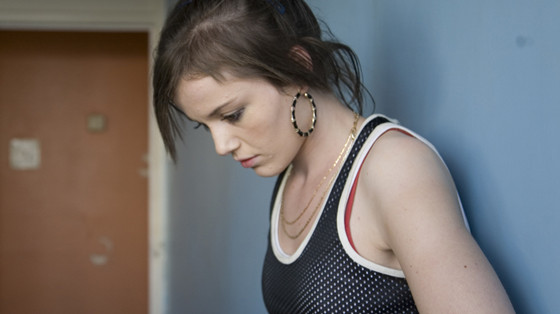
The title of this movie could be easily translated to “Family” regarding its meaning for the lead character through the film. Mia is 15 years old, lives in a poor London neighborhood, and feels imprisoned by her family environment. Her mother treats her like trash, so she subsequently feels like trash and gets in fights at the slightest provocation. The only person she seems somewhat close to is her younger sister. However, they treat each other in a similar way than the mother treats both of them, but less rudely.
We then meet the mother’s new boyfriend (Michael Fassbender); he will represent Mia’s sexual awakening and will even encourage her to pursue dancing, one of her passions that she practices in an abandoned building because she’s embarrassed of it.
This is Mia’s story and the performance the actress delivers is true and brave. Her character is going through puberty and it seem like she’s going to end up like her mother; she knows that and is always anxious about it.
“Fish Tank” shared the Cannes Jury Prize with “Thirst” and it definitely deserved the honor.
6. District 9
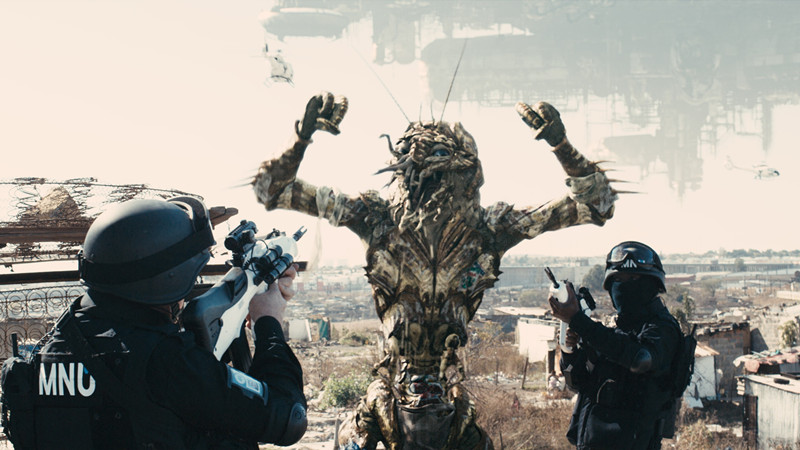
Many movies have been made about a protagonist’s emotional or mental transformation, notably “The Wolf of Wall Street”, “Apocalypse Now”, and “Jacob’s Ladder”, among others.
This film is about a man who comes into contact with an alien substance, and all of a sudden starts transforming into one of these creatures. Said extraterrestrial beings arrived in South Africa in a gigantic ship and they’ve been living in District 9, a poorly built government slum, separated from the human neighborhoods, overpopulated by these shrimp-like aliens.
The transformation and the alien’s poor living conditions serve as a metaphor for apartheid. The film explores the conflicted nature of this white South African man as he becomes an individual part of a hated race, an object of abuse, and he even horrifies his own wife with his new appearance.
At first, director Neill Blomkamp tells this story in a documentary-like fashion, with the victim’s friends talking about what he was like and how it all started. Then we see the tale from our unlucky protagonist’s perspective, who is named Wikus Van De Merwe. We see him transform into this monster, bit by bit, as he gets an alien hand and his body gets a harsh strange texture just before his eye turns yellow and too big for his face.
Empathy is the key aspect of the film, and it certainly makes us feel it.
5. Mother
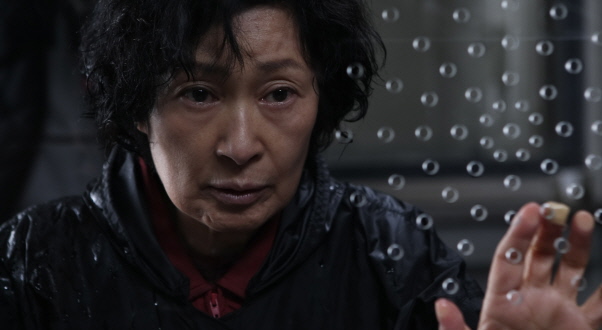
A mother’s task of trying, by all means, to prove her retarded son’s innocence when he’s accused of murder, takes her on a dangerous adventure that puts her own life at risk. This movie begs the question: how far would a mother go to save her son’s life? Would she endanger her own life? Would she possibly murder others to achieve her goal?
This intense thriller deals with motherhood and unconditional love in a very unconventional way. It’s implied along the way that she is to blame for her son’s lack of intelligence, so she feels somewhat guilty, but she isn’t completely sure that she is. However, the protagonist loves her son very much either way. This old lady is forced to do the lazy detectives work on her own in order to find the truth she thinks is hidden.
“Mother” maintains a balance between suspense and black comedy as we’ve seen before in other Korean movies, like “Sympathy for Lady Vengeance”. And with a deeply emotional performance by Hye-ja Kim, the protagonist brings us along for a very entertaining voyage.
4. Inglourious Basterds
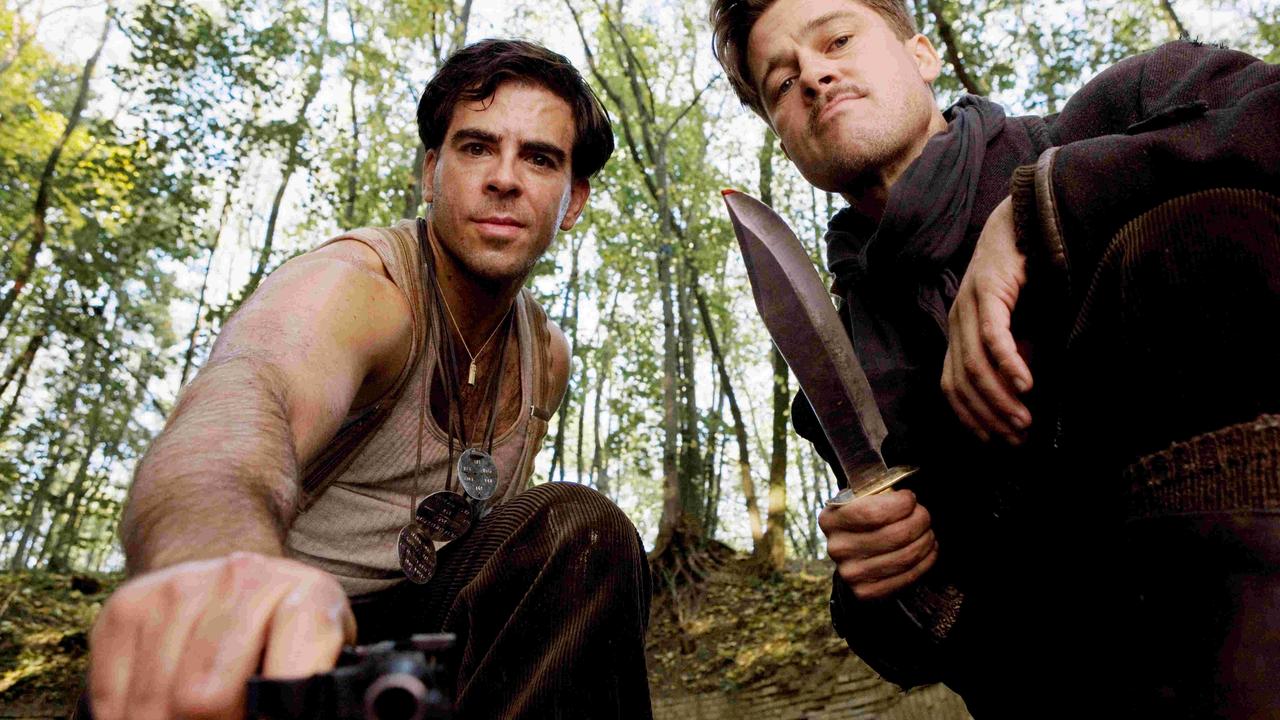
Quentin Tarantino’s homage to the hundreds of World War II movies literally changes history in the process of delivering a groundbreaking war film, which reminded us how a conversation can be more terrifying than the actual murders that possibly follow it.
The dialogue in this movie was written by a genius’s pen (or keyboard). Tension builds up like a skyscraper made of anxiety whenever Colonel Hans Landa open his mouth; forget Darth Vader, the “Jew Hunter” is the most frightening villain in cinema. He is dangerously intelligent, extremely hard to deceive, and lethal when he wants to be.
Tarantino didn’t hide his love for World War II Europe aesthetics in this movie; the costumes are flawless, and the production design really makes it all seem real. The colors are very vivid, and the whole atmosphere gives us a feeling of living in the 1940s after only having seen black and white pictures from that period.
“Inglourious Basterds” is surely Tarantino’s directorial masterpiece, as he said so himself.
3. Thirst
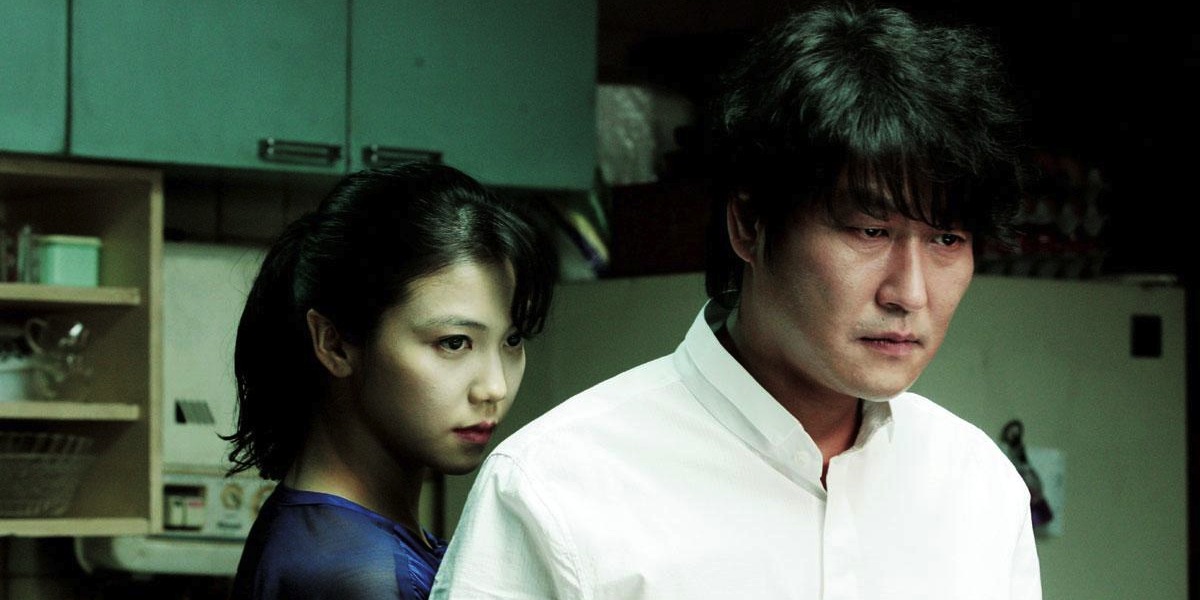
This movie confirms that any plot can be the seed of a great film, if it’s directed by the right person.
A priest falls in love with a childhood acquaintance after meeting her again. He feels that having sexual desires is wrong and punishes himself for not being able to stop thinking about his loved one. However, he can’t fully control his urges, because he’s actually a vampire. Yes, due to a mix of unlikely events, he is turned into a vampire and all of his immoral animal desires come rushing through the door of his mind.
Every frame in this movie, which runs more than two hours, is wonderfully constructed. Chung-hoon Chung made incredible use of his composition knowledge that gives away the conflicted nature of its main character. The contrast of light and shadow finds its way into almost every shot, making the images meaningful and beautiful at the same time.
Having basically the same initial plotline as “Twilight”, director Chan-wook Park makes a fun and disturbed romantic comedy that overflows with re-watchability from every corner.
2. Antichrist

Lars Von Trier’s films are not the most fun to watch, but they’re all surely intriguing. “Antichrist” is about a couple whose only child falls out of a window (which Von Trier’s depicts in the most cinematic and poetic way possible in the intro sequence), who are forced to deal with the horrible grief that comes with the death of one’s son.
Guilt is the main factor in this couple’s suffering (because they were having sex and, during their ecstasy, didn’t noticed the infant walking slowly toward the window to grab a doll before slipping on the ledge), so the husband, being a therapist, tries to cure his wife from her recent crippling fears by taking her to confront them in a cabin in the woods, of which she’s terrified.
As one of the characters puts it: “chaos reigns” in the wild nature that surrounds the old cabin. Von Trier uses extreme imagery to show us how mad and savage nature can be, depicting a baby bird being eaten by ants, and a deer having a miscarriage with the fetus still hanging from her genitals.
Madness ensues when the husband finds out his wife’s fears are a lot worse than what they initially seemed, leading her to deliver the kind of pre-exorcism lines like, “nature is Satan’s church”.
The director delivers a complex and frightening tale about depression, and how bleak life seems when this disease affects you.
1. The White Ribbon
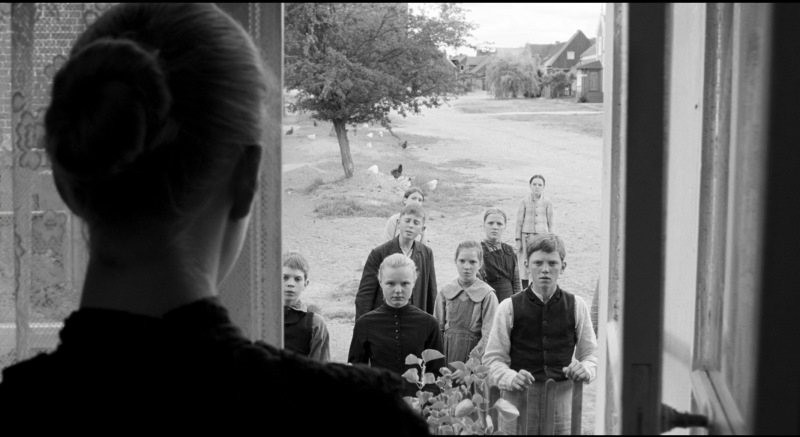
Michael Haneke is a man who doesn’t need a spectacular setting to tell an outstanding story about guilt, authority, and fascism.
The film takes place in a little German village, ruled by a baron, where mysterious and tragic events start occurring. The town’s doctor falls from his horse, after the horse tripped on a set up cable, and nobody knows how it got there. Also, a farmer’s wife is killed in an unlucky accident, the baron’s kid is badly beaten by unknown attackers, and so on.
People in charge are depicted as the real guilty individuals, due to their exaggerated love for power which causes desperation in those who are oppressed. The priest treats his children like prisoners of God, and the baron fails to see how his subjects are unhappy and frustrated with his uncaring ruling.
Haneke did a great job directing an almost entirely amateur cast, getting terrific performances from the many children and professional actors alike.
Filmed in impeccable black and white, the movie depicts the origins of fascism in a pre-World War I Germany, but, as the director says, it’s really a very universal tale.
Author Bio: Juan studies philosophy. He love films and music and plans to go to film school with his cat.